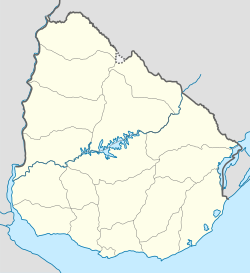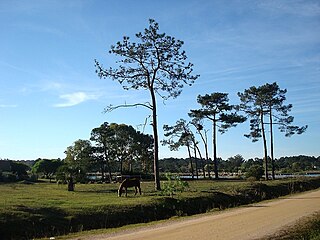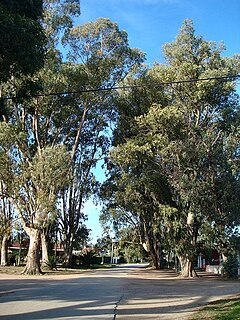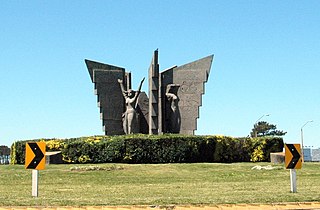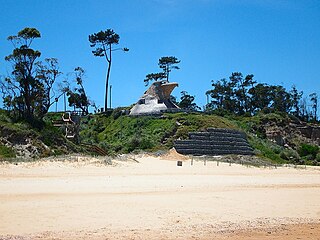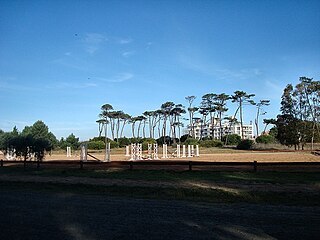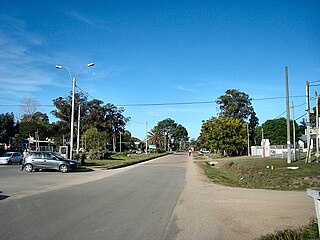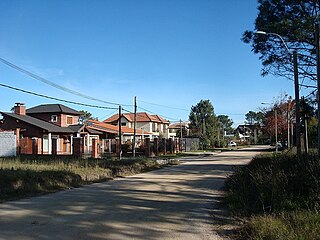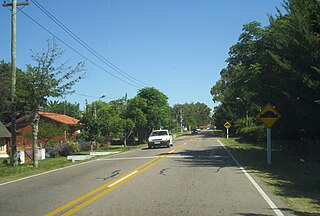Neptunia | |
|---|---|
Resort of the Costa de Oro | |
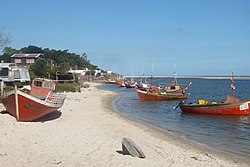 Pando Creek on its path through Neptunia | |
| Coordinates: 34°47′0″S55°52′0″W / 34.78333°S 55.86667°W Coordinates: 34°47′0″S55°52′0″W / 34.78333°S 55.86667°W | |
| Country | |
| Department | Canelones Department |
| Population (2011) | |
| • Total | 4,774 |
| Time zone | UTC -3 |
| Postal code | 15101 |
| Dial plan | +598 437 (+5 digits) |
Neptunia is a resort town of the Costa de Oro in the Canelones Department of southern Uruguay.
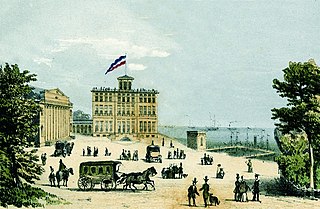
A resort town, often called a resort city or resort destination, is an urban area where tourism or vacationing is the primary component of the local culture and economy. A typical resort town has one or more actual resorts in the surrounding area. Sometimes the term resort town is used simply for a locale popular among tourists. The term can also refer to either an incorporated or unincorporated contiguous area where the ratio of transient rooms, measured in bed units, is greater than 60% of the permanent population.
Costa de Oro is a 45 kilometres (28 mi) long group of resort towns and beaches in Canelones Department, Uruguay, east of the Ciudad de la Costa. Until 19 October 1994 it also included all the resorts that became henceforth integrated under the name Ciudad de la Costa. Since then, Costa de Oro contains only the resorts and locations of the area delimited by the streams Arroyo Pando to the west and Arroyo Solís Grande to the east and by the highways Ruta 8 and Ruta 9 to the north.

The Departamento de Canelones , with an area of 4,536 km2 (1,751 sq mi) and 518,154 inhabitants, is located in the south of Uruguay. Its capital is Canelones.
